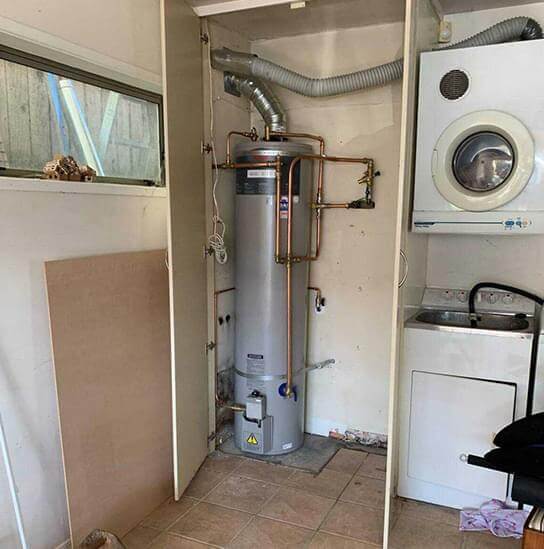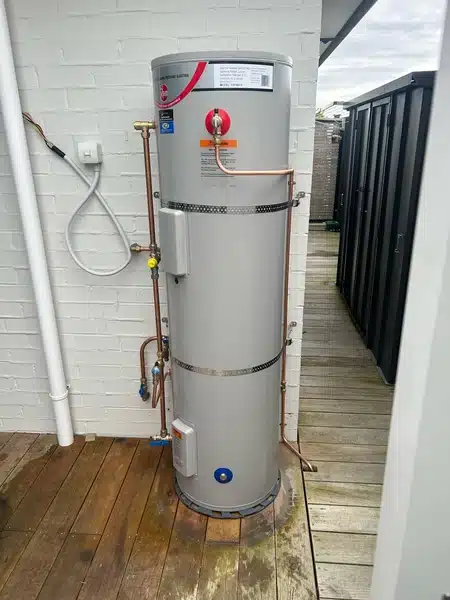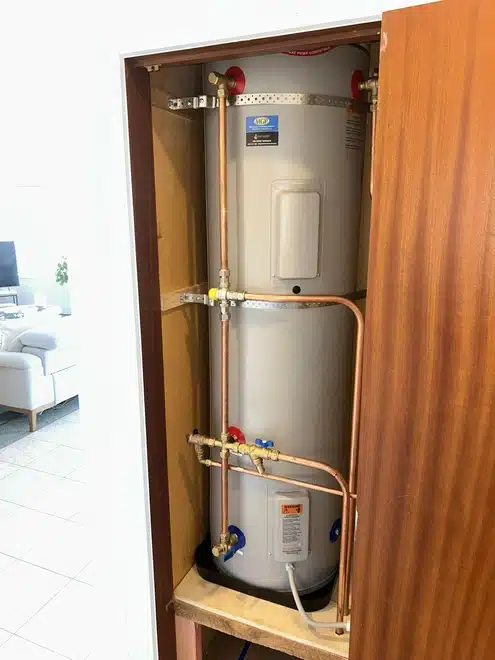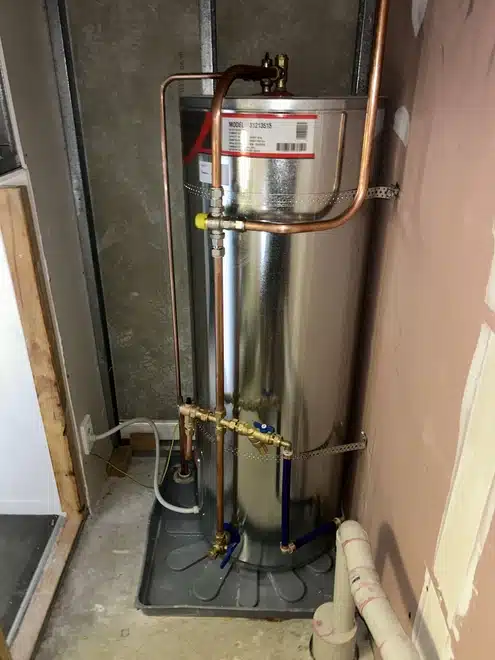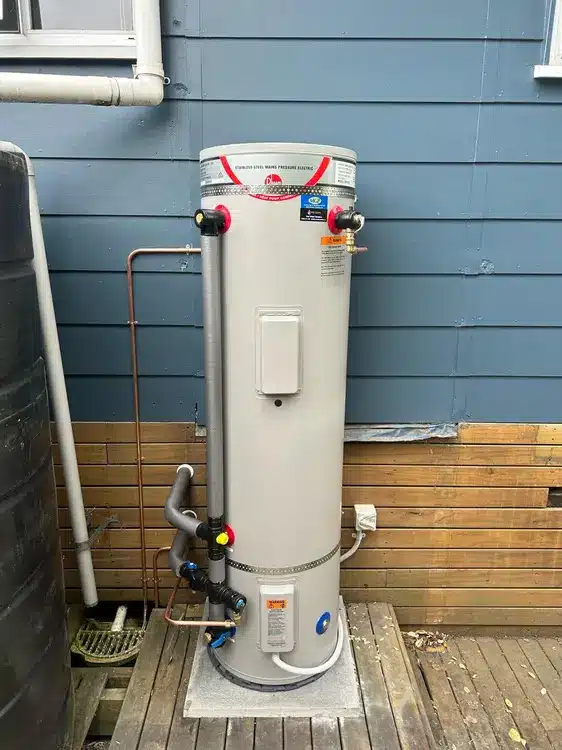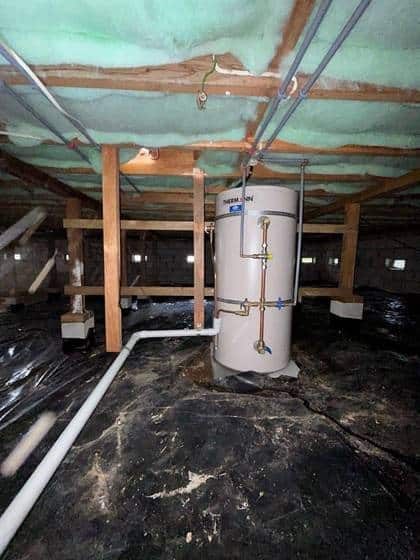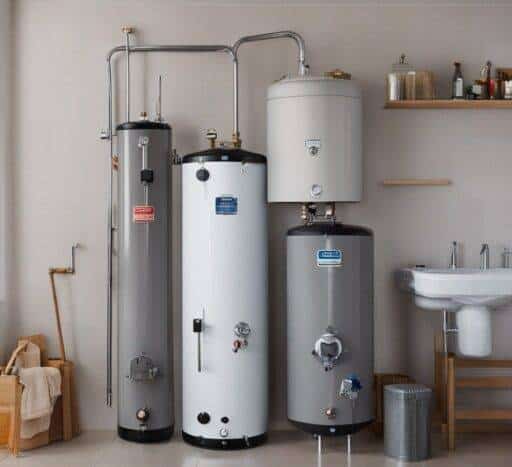Factors Affecting Your Water Heater Installation’s Price
Electric water cylinders, gas continuous flow, and hot water heat pumps – there are many kinds of hot water cylinders on the market. The prices between different heaters can vary enormously, so the model of water heater you choose will have a big difference to the cost of the installation.
The extent of work that has to be done will also impact how much you pay for your water heater installation. If you’re switching from electric to gas, you’ll need new fixtures like gas hobs, which will mean lots of extra costs to consider.
The price of your installation will also depend on who you choose to do it. Qualified, licensed plumbers, electricians, and gas fitters will charge higher fees, but you’ll get the peace of mind knowing you’ve got a hot water cylinder you can rely on.
Your hot water cylinder is an essential part of your home, providing hot water for showers, baths, and other household needs. However, hot water cylinders don’t last forever. They typically last for 10 to 15 years, but some may need to be replaced sooner if they are damaged or malfunctioning.
If your hot water cylinder is nearing the end of its lifespan, it’s time to start thinking about a replacement. Here are a few things to keep in mind when choosing a new hot water cylinder:
- Size: The size of your new hot water cylinder will depend on the number of people in your household and your hot water usage.
- Type: There are two main types of hot water cylinders: low-pressure and mains-pressure. A low pressure hot water cylinder is typically used in older homes that do not have a mains water supply. Mains-pressure cylinders are used in newer homes that have a mains water supply.
- Cost: The cost of a hot water cylinder replacement can vary depending on the size and type of cylinder you choose. A low pressure hot water cylinder is typically less expensive than a mains pressure hot water cylinder. The hot water cylinders NZ cost or hot water cylinders NZ price will also vary depending on the location of the cylinder and the complexity of the installation.
Once you’ve chosen a new hot water cylinder, it’s important to have it installed by a qualified plumber. A qualified plumber will be able to install the cylinder correctly and safely.
The average cost of hot water cylinder replacement in New Zealand is from $2,000. However, the cost can be higher or lower depending on the factors mentioned above.
If you’re considering a replacing hot water cylinder option, it’s a good idea to get quotes from several plumbers before making a decision. This will help you to ensure that you are getting the best possible price for the work.
How Much You Can Expect To Pay For Your Installation
If you’ve moved into an old house, you’ll probably have an old, low-pressure water heater. Replacing this with a new, high-pressure model (for instance, if you’re switching to modern tapware) will start from $2000.
A new electric water heater will cost approximately $2000-$3000 to install and get set up for daily use. A new gas continuous flow system costs the same, at about $2500-$3500. But because you’ll need a registered gas fitter and plumber, the installation can come at a higher cost.
You could also face higher running costs if you don’t have access to a supply of natural gas and end up using LPG gas bottles instead. A new gas continuous flow system costs the same, at about $2500-$3500.
But because you’ll need a registered gas fitter and plumber, the installation can come at a higher cost. You could also face higher running costs if you don’t have access to a supply of natural gas and end up using LPG gas bottles instead.
A new heat pump water heater is the most expensive option. They can cost about $5000-$8000 to install. But they’re far more efficient to run than standard water heaters, which means that you’ll benefit from much lower running costs.
Hot water heating makes up about 30% of the average household energy bill, so it’s worth giving real thought to the best system for your home. An efficient system could save you much more on energy bills in the long run.

